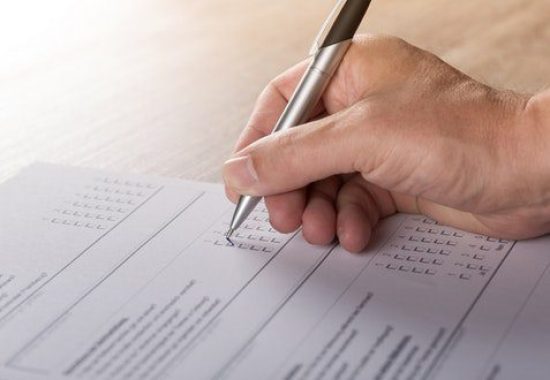
“We need you to complete a personality test as part of your application.”
It’s a sentence that can make any job hunter gulp. Applying for jobs and attending interviews can feel like you’re on show in a giant fishbowl. If you add personality assessments into the mix, you can’t help but feel like you’re well and truly under the microscope. It’s in the word – our personality is something that’s very personal to us, so the thought of opening it up for scrutiny is daunting.
However, if you know what to expect and why these tests are so crucial to your application, they won’t seem as bad!
Despite the personal nature of the task, try not to see a personality test as an inconvenience or an invasion of privacy. In fact, it’s a good sign if a potential employer wants you to complete them. An interest in your personality shows that an organisation treats their staff as individuals and that they’re genuinely looking for the right person for the job.
Your personality dictates how suitable you are for a job overall. How you like to work, which sorts of tasks you excel at and how you interact with your colleagues are all vital to job success. Luckily, all of these things depend on your personality. Therefore, personality tests allow potential employers to see whether or not you will fit in with the company culture and get the job done.
There are a number of personality tests an employer or interviewer may ask you to do. We’re going to give you the lowdown on three of the most common personality type indicator assessments.
The Myers-Briggs Type Indicator is probably the most commonly used personality assessment, especially within a recruitment context. It’s based on, Swiss psychoanalyst, Carl Jung’s theory that there are four psychological functions that define our personalities and therefore our experience of the world. These are:
Jung’s theory suggests that, in each of us, one of these is more dominant. Inspired by Jung’s theory, mother and daughter team Katharine Cook Briggs and Isabel Briggs Myers created the Myers-Briggs Type Indicator test. The self-taught specialists in psychometric testing created a test with 16 results based on dominant personality traits.
It is believed that your personality type, based on your results from this test, determines which type of role you assume at work. It’s also a good indicator of which job suits you best and how you interact with others.
To learn about the different Myers-Briggs personality types and get an idea of which category you fall into, take a look at the picture below.
The theory of the Big Five Personality Traits is a comparably modern one. It differs from the Myers-Briggs model in that it is based on the idea that every personality is made up of five traits. These are:
There are different ways to assess and score these personality traits, but the overall result will determine which of these is your most dominant characteristic. To give it a go for yourself, click here.
The DISC model is a little different. The great thing about it is that it isn’t just useful for employers, but it’s also a great self-development tool. The model is so called as it is an acronym of the four key personality traits the model aims to assess:
For a full break down of each trait, see this article.
It can help you in your professional development because you can identify the areas in which you need to improve. Let’s say, for instance, that your goal was to become a Team Manager, but your profile came out as High C (Compliance). You would then know that you need to work on your skills and experience relating to your dominance and influence, to build on your abilities in those areas.
There you have it, you’re now all clued up on personality tests. The next time you’re faced with one during a job hunt, you’ll know why they’re so significant. You’ll also have some insider knowledge up your sleeve! Personality assessments are not to be feared and they’re not designed to catch you out. If you get the job, you’ll know it’s the perfect fit! Don’t worry if you’re not successful, the right job is out there waiting for you.
Follow us on Twitter, LinkedIn and Facebook for business insights, interview tips, advice and career opportunities.
Notifications